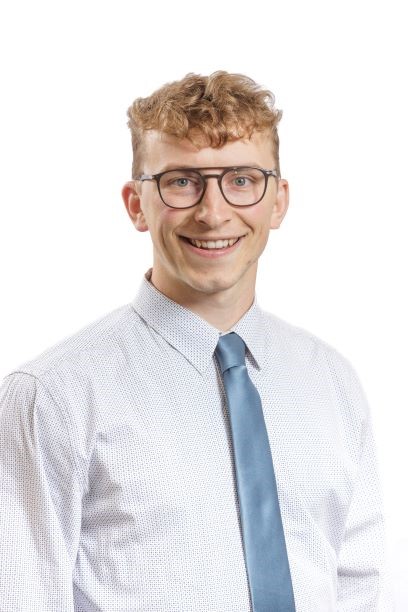UROP Project
Isometric Handgrip Training as a Novel Strategy to Improve Cerebrovascular Function in Humans
human subjects research, vascular, health, exercise, clinical trial

Research Mentor: Mr. Joe Vondrasek,
Department, College, Affiliation: Health, Nutrition, and Food Sciences, Education, Health, and Human Sciences
Contact Email: jdv22e@fsu.edu
Research Assistant Supervisor (if different from mentor):
Research Assistant Supervisor Email:
Faculty Collaborators:
Faculty Collaborators Email:
Department, College, Affiliation: Health, Nutrition, and Food Sciences, Education, Health, and Human Sciences
Contact Email: jdv22e@fsu.edu
Research Assistant Supervisor (if different from mentor):
Research Assistant Supervisor Email:
Faculty Collaborators:
Faculty Collaborators Email:
Looking for Research Assistants: No
Number of Research Assistants: 2
Relevant Majors: Exercise physiology, Biology, Health sciences, Athletic training
Will also consider any major if student is on a pre-health track (pre-med, pre-PT, pre-PA, pre-OT, etc.)
Project Location: On FSU Main Campus
Research Assistant Transportation Required: Remote or In-person: In-person
Approximate Weekly Hours: Up to 10 hours per week, During business hours
Roundtable Times and Zoom Link:
Not participating in the roundtable
Number of Research Assistants: 2
Relevant Majors: Exercise physiology, Biology, Health sciences, Athletic training
Will also consider any major if student is on a pre-health track (pre-med, pre-PT, pre-PA, pre-OT, etc.)
Project Location: On FSU Main Campus
Research Assistant Transportation Required: Remote or In-person: In-person
Approximate Weekly Hours: Up to 10 hours per week, During business hours
Roundtable Times and Zoom Link:
Not participating in the roundtable
Project Description
Thousands of people die every year because they have poor heart and brain blood vessel health. Exercise can help people improve heart and brain blood vessel health. Sadly, many adults do not exercise enough. Some adults don’t exercise because they don’t have time or access to a gym. Isometric exercise might help solve this problem. Isometric exercise involves holding a position like a plank or a handgrip squeeze. This is usually done for a set amount of time. During isometric handgrip training, you squeeze at 30 percent of your maximum for 2 minutes. You complete 4 rounds total. Even with one minute of rest between rounds, the session only lasts 12 minutes. This training is great because it requires little time and simple equipment. It is also great because previous research shows it is good for heart and blood vessel health. The American Heart Association recommends this training for improving heart health. But, we don’t know if isometric handgrip training is good for brain blood vessel health. We want to answer the question: how does isometric handgrip training affect brain blood vessel health? To answer this, we will compare brain blood vessel function before and after 8 weeks of isometric handgrip training.Research Tasks: Help perform literature reviews, recruit research participants, help generate/manage recruitment approaches, schedule/coordinate with study participants, help with data collection, help with exercise testing and other research procedures, provide data management support, data analysis, assist with institutional review board and clinicaltrials.gov documentation, help with equipment maintenance, perform equipment calibration, and/or other study-related tasks.
Skills that research assistant(s) may need: Required Skills: effective communication and interpersonal skills, organization
Required Traits: Curiosity, integrity, and ambition.
Mentoring Philosophy
My goal as a mentor is to help students achieve their academic and personal goals through hands-on learning experiences. I aim to help students develop a broad understanding of the research process with a focus on working with human participants, so they appreciate the work required to conduct meaningful research. To support this, I strive to create a learning environment where students develop valuable research skills and a growth mindset—one that views failure not as a setback, but as an opportunity to learn and improve. As a mentor, I commit to regular communication, being available when needed, and creating space for open and honest dialogue. I believe these efforts help build mutual trust and reinforce the value of each student’s contribution to the research process. In turn, I expect students to engage actively by being organized, communicating honestly, and showing initiative. I believe a successful mentor-mentee relationship is built on shared goals, transparency, and mutual respect. Lastly, I want students to know that science and research can be deeply rewarding—and even fun. As my college wrestling coach used to remind us when we were taking ourselves too seriously in practice, “It’s okay to smile.” I hope to carry that same spirit into my mentoring, encouraging students to enjoy the process as they grow.Additional Information
Students interested in being a UROP student for this project can complete this form: https://forms.office.com/r/BbpgvbStx6This research project will be conducted in the Cardiovascular and Applied Physiology (CAP) Laboratory on FSU's campus. Students can find information about the CAP Laboratory at caplaboratory.com
Availability for morning research visits will be a major consideration when selecting students for the position.

